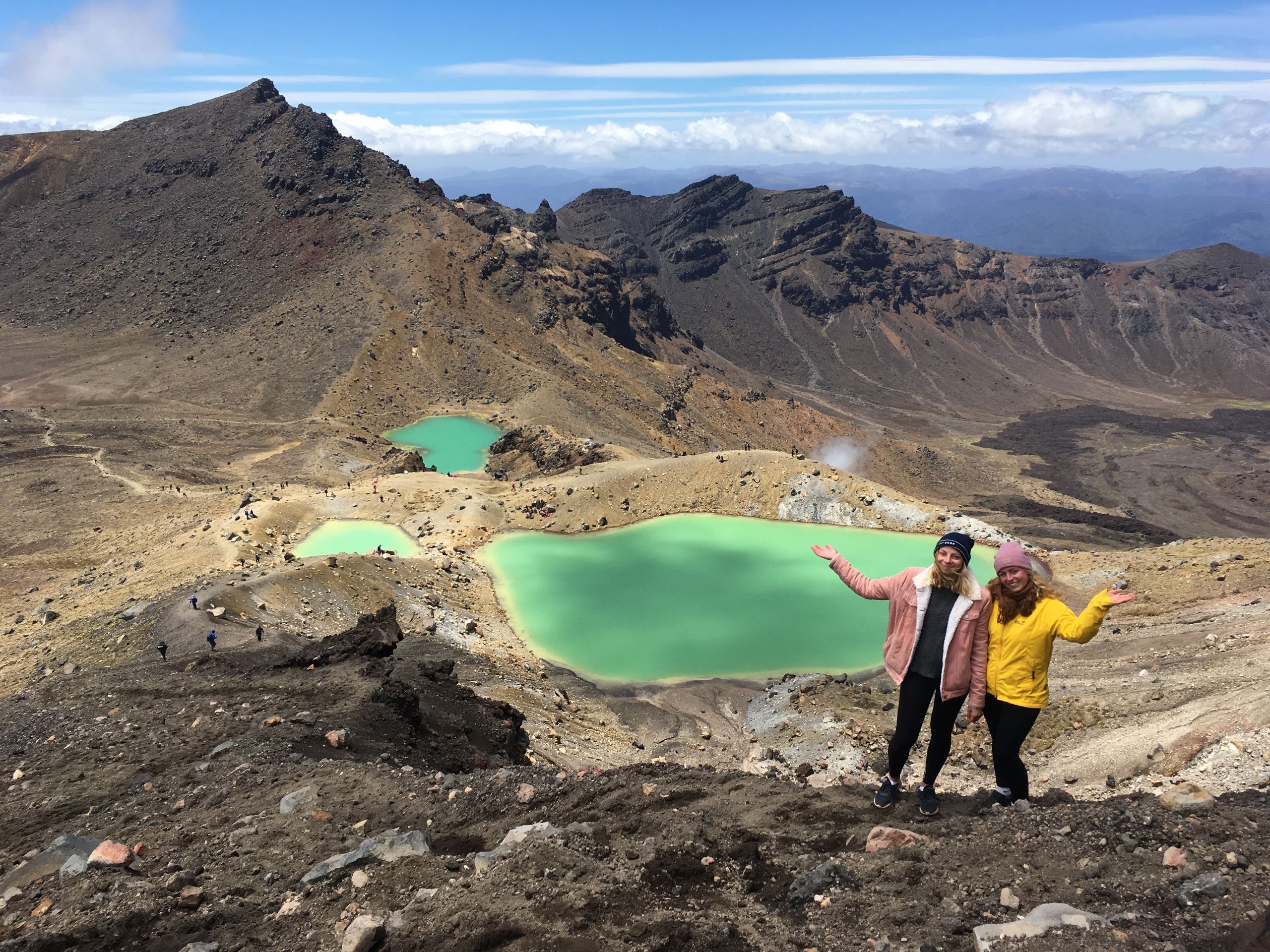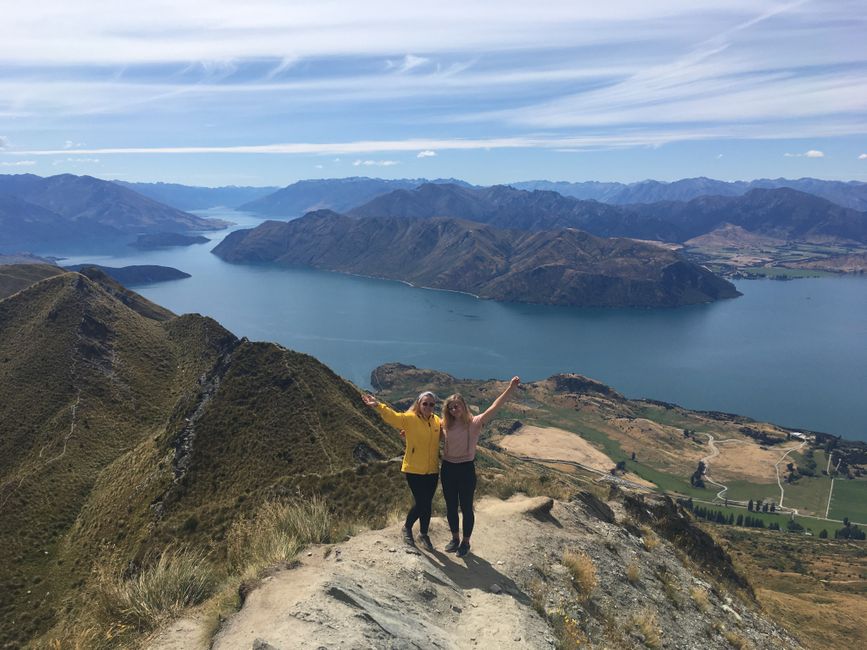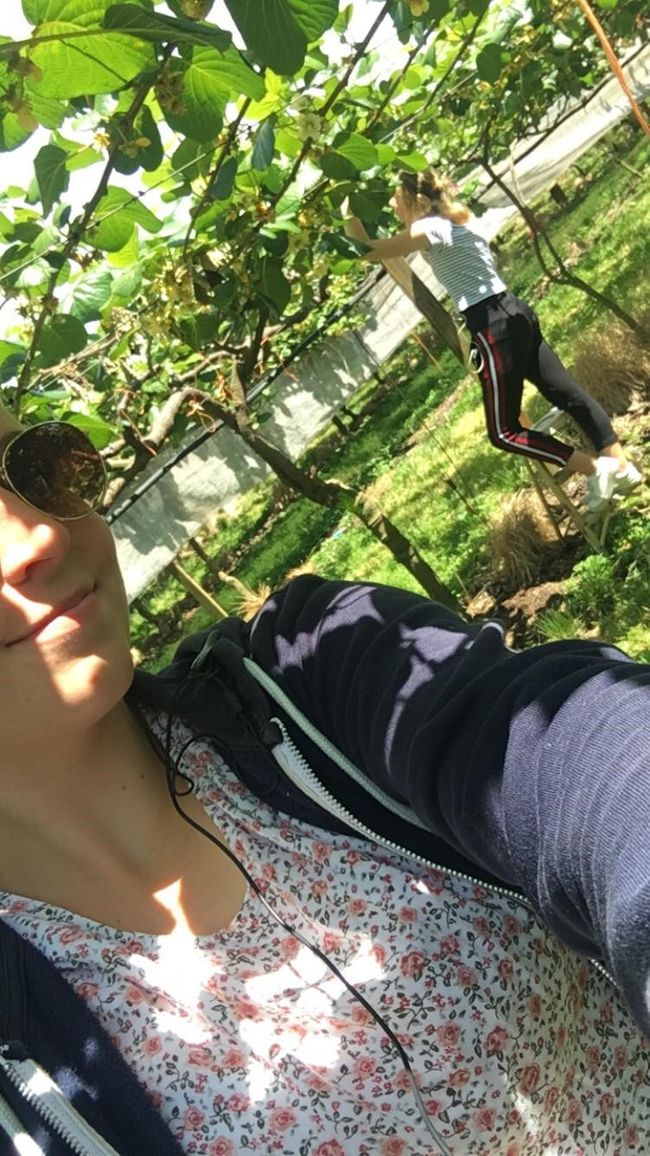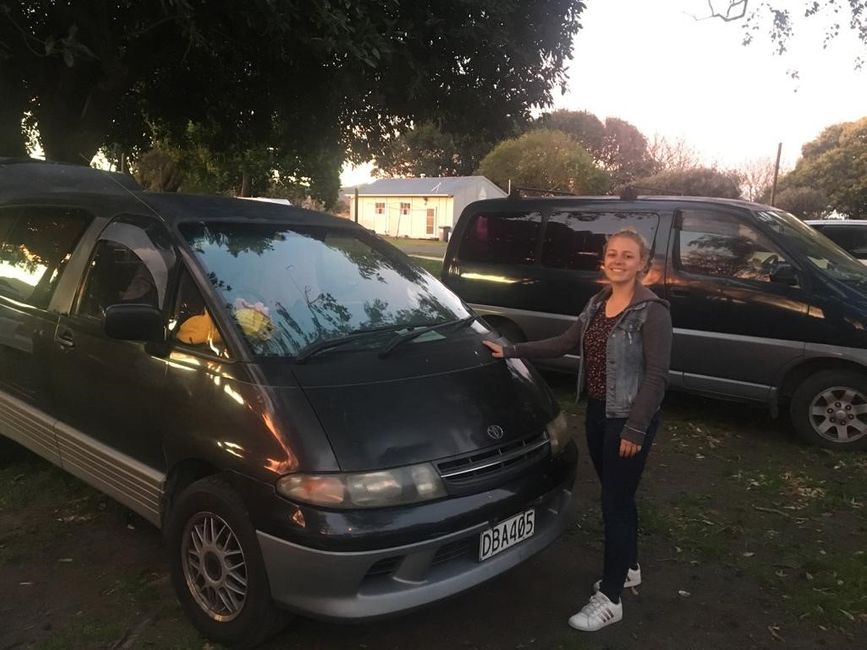-Chapter 18- Mac, Powen and the Kiwis & Te Puke Holiday Park- Part 2
प्रकाशित: 11.08.2020
Mac, Powen and the Kiwis- Part 2
After more than a week at Powen's, our daily work routine was finally shaken up. After lunch, Mac gave him the task of collecting the branches with the tractor that he had cut from the trees all over the farm for days. Suddenly, he said to us, "One of you have to drive the ghfdy" and pointed towards the tractor, which unfortunately was parked in front of our car. When he asked us, "All good?", Celina nodded convincingly in the hope that I knew what he wanted from us. As we walked away, we realized that I had hoped for the same thing. Fortunately, Powen laughed when I confessed to him that we had understood absolutely nothing. But that completely threw him off. After several attempts to explain to us what we should do (he kept laughing), we finally understood that one of us should drive the tractor. As the confident driver of a Toyota Estima with weak brakes and a wobbly steering wheel, Celina volunteered for the job.
It turned out that Powen liked to talk a lot and very fast. He had family in India and a brother in Australia. He asked Celina about several German words, such as "India", "fruit", "kiwi", and asked her questions about Germany. He mentioned that he had been living in New Zealand for 5 years and asked what we wanted to do in New Zealand. (Celina said, "She doesn't know yet." at first, and then, to save me, she said, "Maybe something with languages." I hope Powen thought I could speak fluent French). It looked funny anyway as Celina drove the tractor around the kiwi farm, with Powen, like a servant, running behind her and gathering the wood.
A few days later, beehives were placed on the farm. Mac explained to us that they were important for the kiwis. As is typical, I got stung right away. Unfortunately, Celina and I always reminded Powen of the character- the short-legged little Muck- because his loose pants, combined with rubber boots, made his legs look short, and he walked very quickly through the rows without us noticing him. He would crouch down and look serious to see a row (I also called it prowling), or squeeze through the smallest holes in the net to switch rows. Since the day with the tractor, Celina had to repeat everything Powen explained to her every time. It turned out that unbelievably he could understand us almost as little as we could understand him. The communication was still the worst ever. Someone always ended up laughing because it was actually frustrating. With a bit of luck, we understood half of what he said the second time, and we felt sorry that he had to repeat every sentence. As a result, every conversation was an adventure in itself. A typical situation was the day when we were supposed to receive our first payment. When we went for lunch, he appeared beside us and asked, "Didd yu goht your behmen?"
Me: "Hm?"
"Did you got your behmen?"
After giving him a confused look, I shouted, "Ahh Payment!"
When we finally reached the last row of the kiwi farm with our tedious work, he explained to us in a complicated way how we should take turns working on the row. Unfortunately, I didn't understand anything, no matter how much I concentrated. Accordingly, I tried to follow him with an expression of incomprehension and seriousness, causing him to laugh and shout, "No worries!"

Te Puke Holiday Park Part 2
After we had recovered from the initial shock, we settled in quite well at the Te Puke Holiday Park. We even extended our stay for another two weeks. Although we had never really cooked before, we did our best every evening in the quite overcrowded kitchen. Besides the Latin Americans, who cooked elaborate and delicious-smelling stuff, rolled pizza dough, or chopped vegetables, we felt a bit poor with our creations. We tried ready-made meals, wraps, pasta with tomato sauce, and pumpkin soup, which we had to throw away because it tasted, smelled, and looked disgusting. Our highlight during the early days was Ratatouille, in which we threw together rice, ground meat, diced tomato sauce, peas, uncooked carrots, and pickles. In the end, it didn't look beautiful and tasted like a mix of everything but also like nothing. When an Argentinean girl asked with great interest what our dish was called, Celina tried to explain that it was a kind of Ratatouille, to which she enthusiastically said, "Ahh, it's a Mix!"
A week after our first jumpstart, we needed another one on our first day off at the Te Puke Holiday Park. Since everyone else was at work, the campsite was empty. First, we bought jumper cables at the hardware store, which fortunately was across the street. We started looking for someone who could help us. A man sent us to one of the sheds where the permanent residents of the park lived. We knocked a few times, but no one opened. After 20 minutes, we finally found an older man who aggressively watered the flowers and seemed to be the caretaker of the campsite. He immediately zoomed over to our pitch and kindly helped us. (Another resident of the park suddenly appeared in front of our car. When he offered to help us, the caretaker freaked out and shouted, "Fuck off, Patrick! FUCK OFF!", until the other person fled).
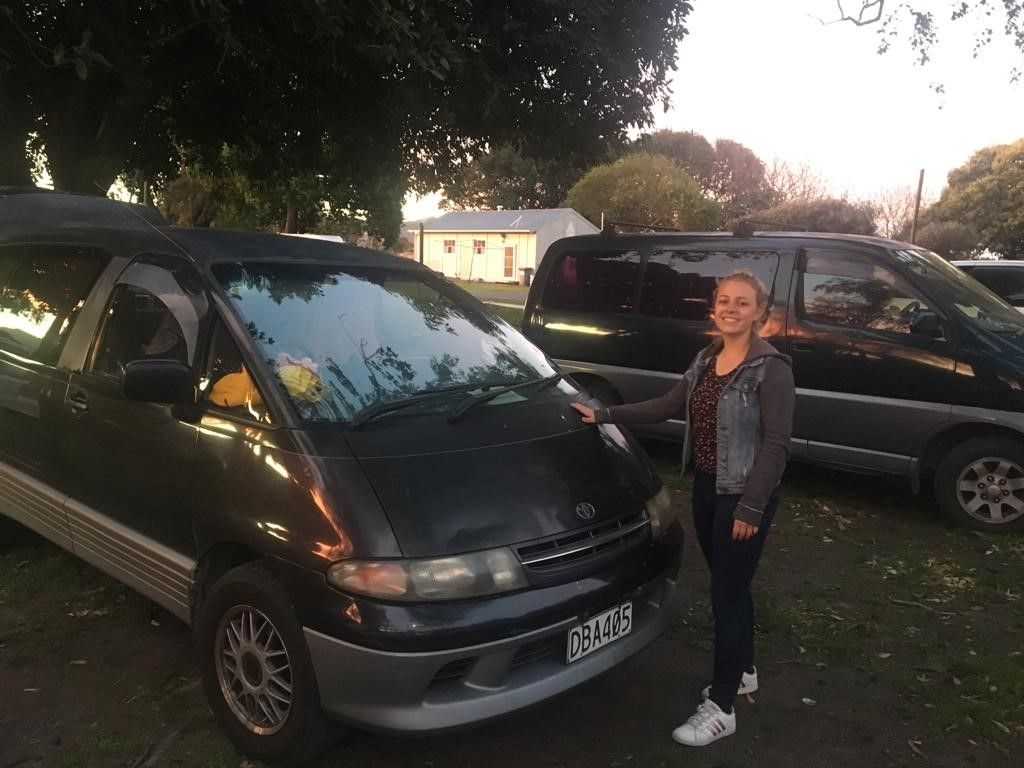
We had to get used to the other guests at the Te Puke Holiday Park, most of whom fulfilled the stereotype of backpackers. They were so nice and so open, and almost every evening we got into small talks, were asked for help, or had to ask for help. And all of it in English, because until then we were the only Germans there.
Over time, however, we were no longer the only ones on the pitch: there were two Spanish girls who often argued, a lone Argentinean whom we called the Gangster of New York, and a German couple who were quite unsympathetic to us because they constantly gave us death stares, never said hello, and loudly gave each other know-it-all instructions while cooking. One morning, a boy our age with a baseball cap and a coffee pot sat alone at the table, looking absolutely German. In the evening, we made a very creative dish: dry rice with egg and sausage, when Celina came to me in a panic and whispered, "The German asked if he can sit with us, and I said yes!". Feeling overwhelmed, we ate with a stranger for the first time, who wasn't exactly more open than we were. After a minute of silence, we managed to have a decent conversation with him. He came from Thuringia, and as Celina explained to him, "from MV... well, uh, from Mecklenburg-Vorpommern". He toasted one sandwich after another and responded to everything we told him with "Krass." In the end, we concluded that the best way to describe him was likable and totally normal. After that, we hypothesized that we could usually determine a person's nationality by their appearance- at least with Germans, we are almost always right.
-> To be continued
उत्तर
